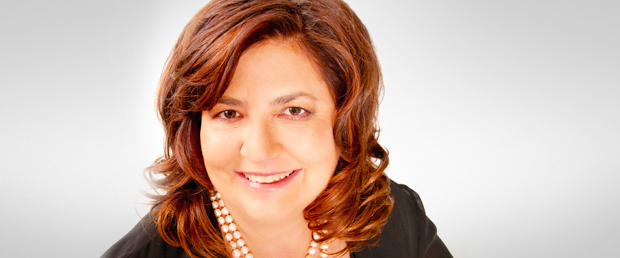
When Capt. Mark Kelly set his career goals, he set them high. He wanted to walk on Mars.
And while that particular goal is not going to come to fruition, the astronaut and naval officer stressed the importance of aspiring to lofty goals in his keynote presentation at the American Gem Society Conclave 2012 in Miami on Thursday. Some things just can’t be helped: “We could send someone to Mars right now but we couldn’t get them back. That’s the hard part.”
His game plan was to become a naval aviator and then a test pilot, but the building blocks of that career didn’t come easily.
He wasn’t a great pilot, for example, when he started out, but he was inspired by his mother, who was determined to become a police officer at a time when few women were entering that line of work. He saw her try again and again, until she was able to pass the most challenging part of the test — scaling a 7-foot-5-inch wall faster than the men, although she was only, as he puts it, 4-foot-13.
Landing a jet on an aircraft carrier proved to be Kelly’s wall.
Advertisement
“I barely passed, but I stuck with it,” he says. “If you aren’t good at something in the beginning, I learned, it’s not a good indicator of how good you can become.”
Practice, persistence and the drive to never, ever give up can pay off.
And though he never will walk on Mars, Kelly flew 39 combat missions over Iraq and Kuwait during the first Gulf War– and ultimately went into space four times on Space Shuttle Endeavour.
Naturally, when he met his wife, U.S. Rep. Gabrielle Giffords, during a trip to China, Kelly assumed he was the one with the risky job. Still, if he was himself driven, she was if anything, more so. He thought she had the energy and passion of three women. He couldn’t help but be impressed: She raced motorcycles, competitively jumped horses, had lived in a Mennonite community in Mexico and spoke fluent Spanish. Above all, she was dedicated to public service and her community.
When the call came that she had been shot in January 2011, he gathered his family and got on a plane immediately. En route, he heard on TV that his wife was dead. Kelly’s daughter had never seen him cry before, he said. She said he cried with his whole body. Thirty minutes later, the media reported it had been a mistake; she was in surgery. But the roller-coaster ride of emotions had just begun.
Giffords was in a coma for 10 days; doctors had expected her to be in a coma for months, maybe forever.
Advertisement
“Gabby’s connection to my wedding ring gave me some hope,” Kelly says. “As I held her hand four days after her injury, she felt my ring, pulled it off and started moving it from finger to finger. It gave me hope that there was still something there.”
Giffords still suffers from aphasia (It’s a struggle to find the right words), she can’t use her right arm at all and even walking is tough. “I learned something about patience,” Kelly says, “and how I needed to be a more patient person.”
At first Kelly quit the space program, but then he recommitted as Giffords began to get stronger. He decided it was in the best interest of his shuttle crew to fly the mission, and that Giffords would want him to, as well. “She has been a big supporter of my career and the space program,” he said. He flew the final space shuttle mission in May 2011.
The most important lesson Kelly learned from his wife’s rehabilitation was that the power of the human spirit is an incredible thing. “I watched Gabby fight so hard to survive and come back and deny the acceptance of failure. She’ll tell me `fight, fight, fight,’ on the way to therapy.
“She’ll be back. She’s very passionate about public service. She tells me she will one day be back in one form or another.”
Another lesson Kelly has learned is the importance of gratitude simply for being alive. “I learned a little about faith, not only in God but in our friends, our family and our country. I learned that things can change for us in an instant.”
Advertisement
Giffords is also, her husband says, a lover of jewelry and enjoys the Tucson Gem and Mineral Show.
“She wanted me to send you a message,” Kelly told the rapt Conclave audience: “Be passionate. Be courageous. Be strong. Be your best.”
{JFBCLike}
{JFBCComments}